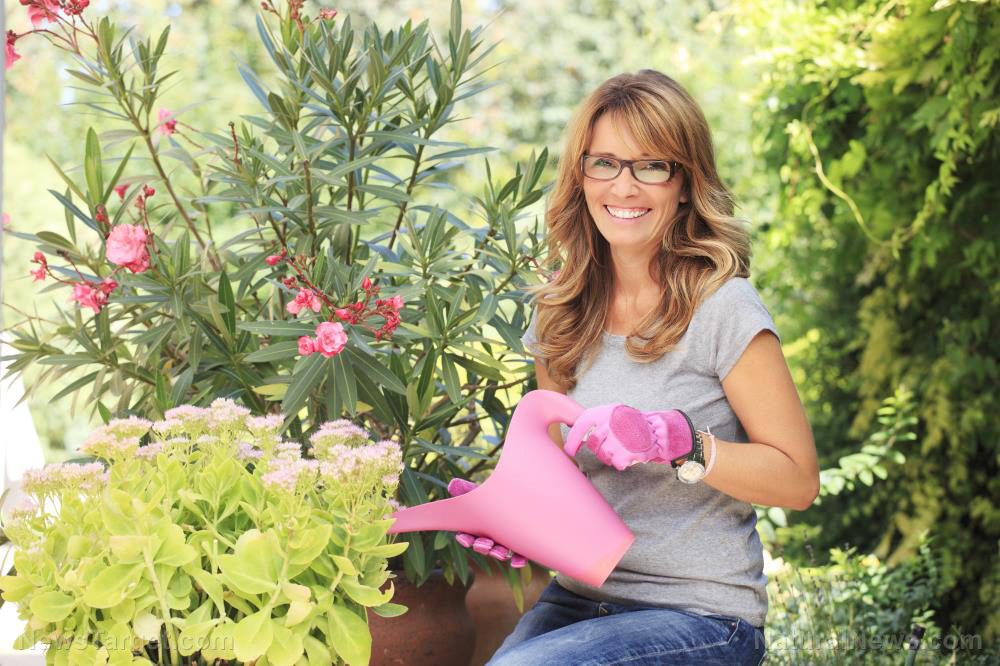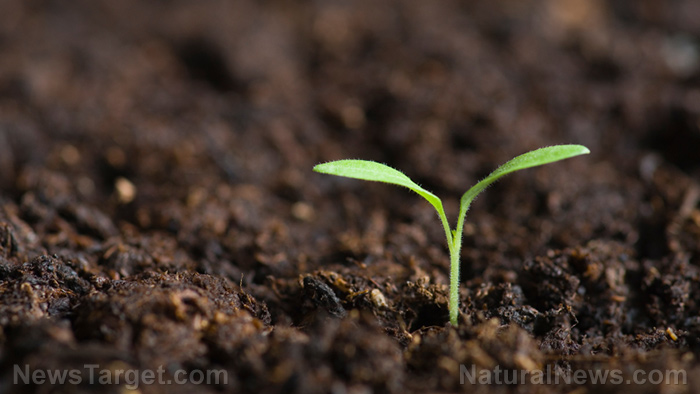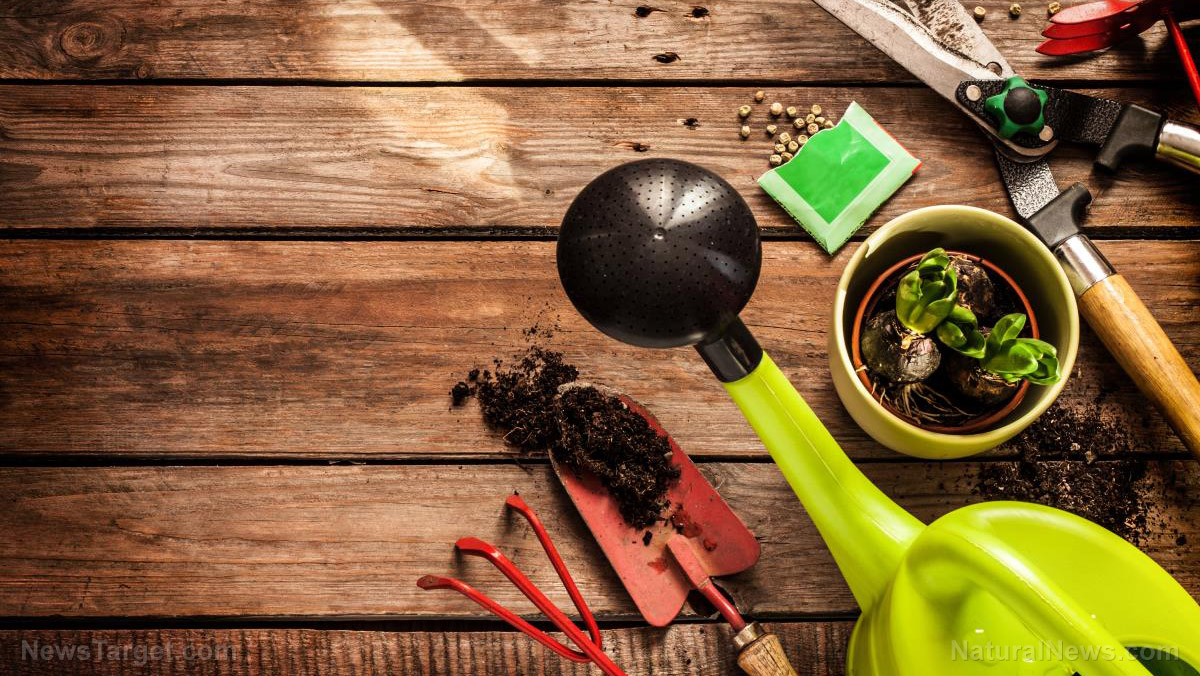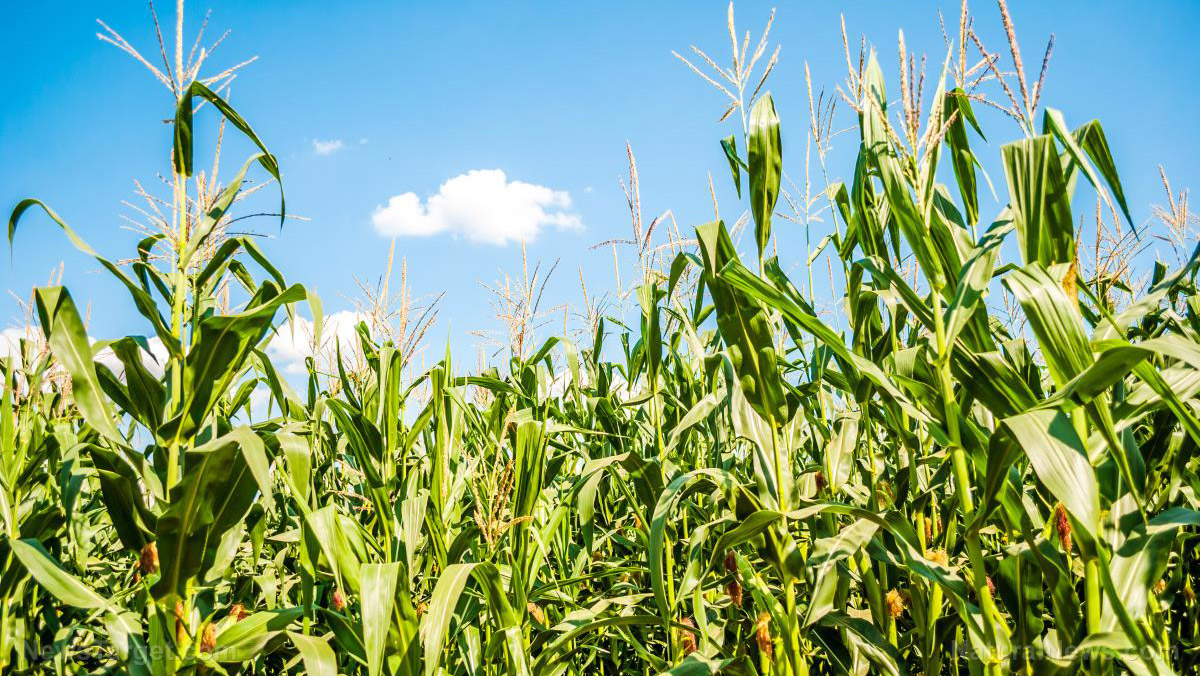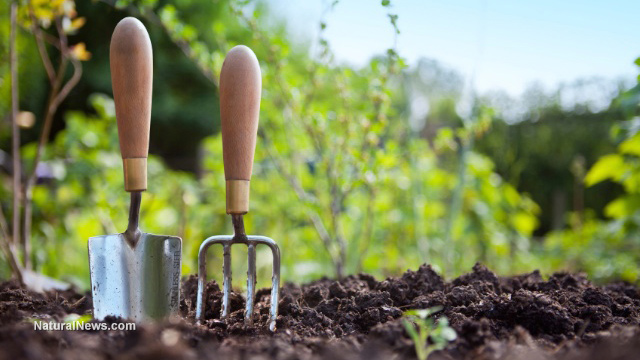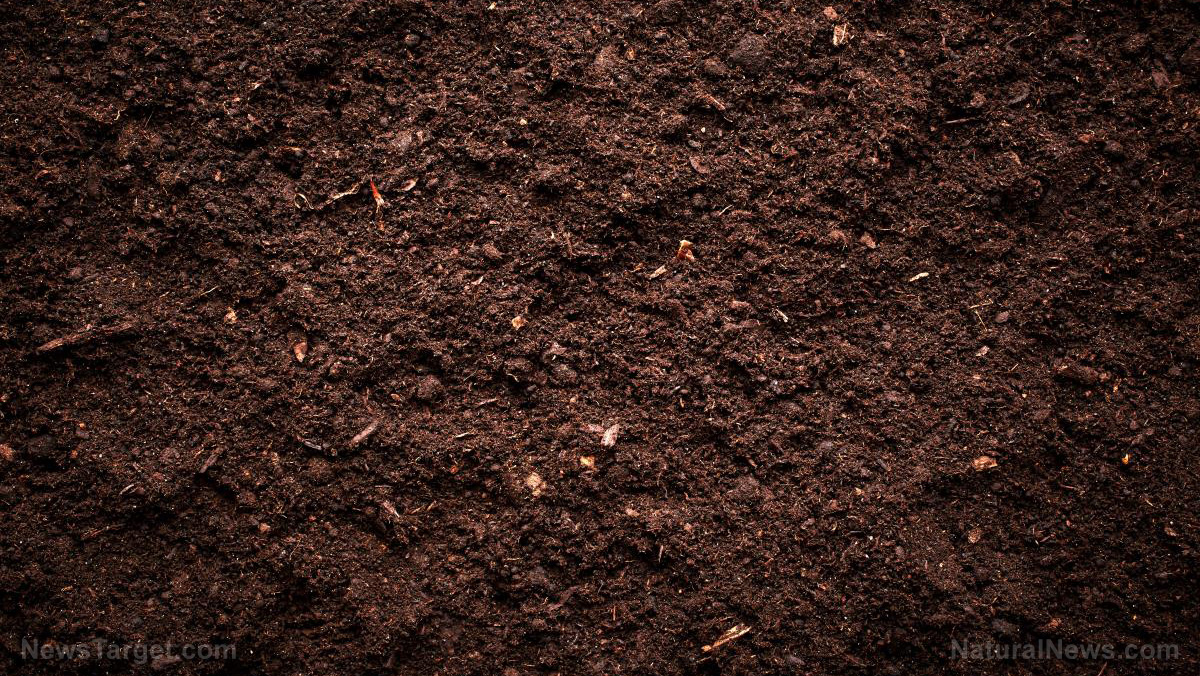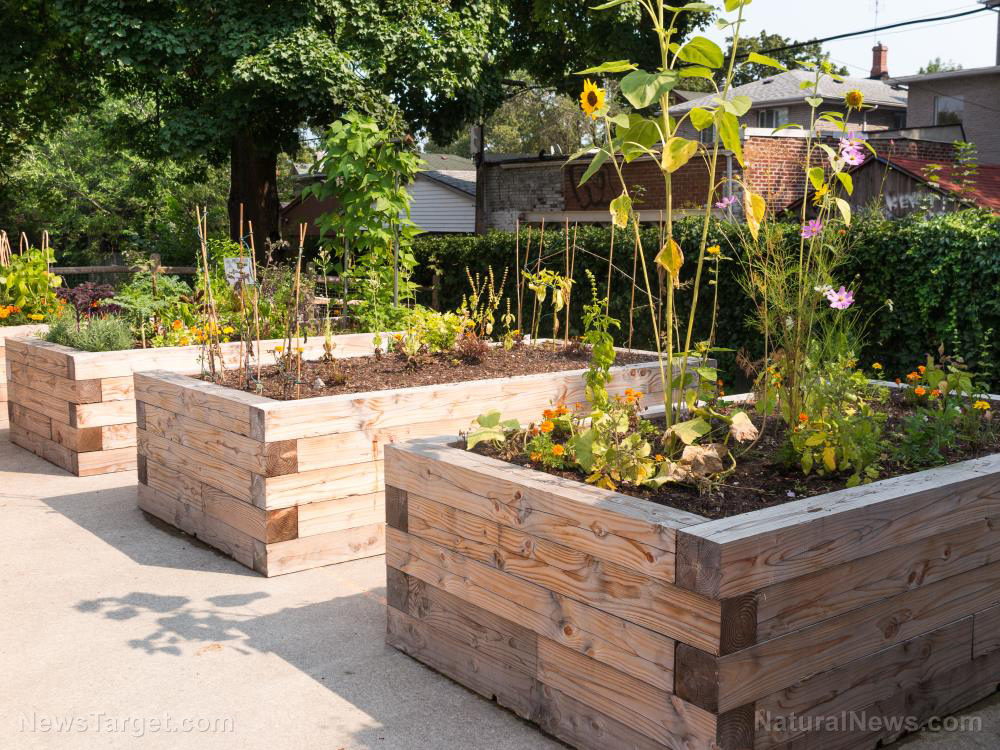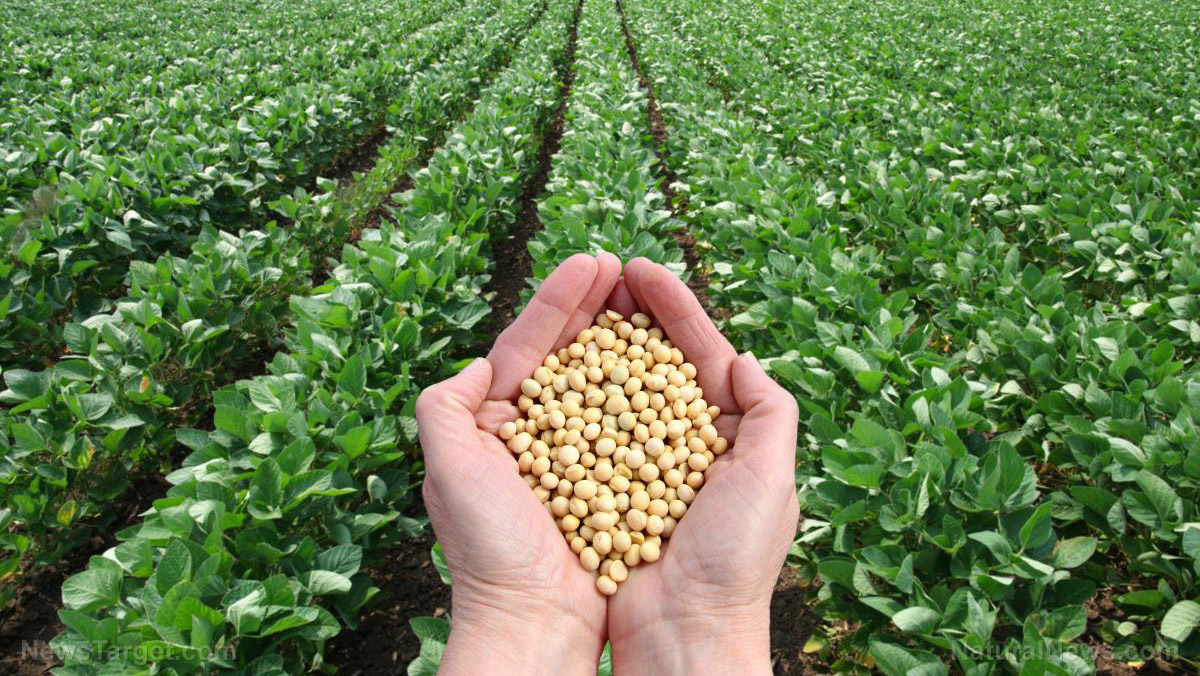Homesteading tricks: 2 Secrets that can get rid of weeds in your home garden FOREVER
03/28/2019 / By Zoey Sky
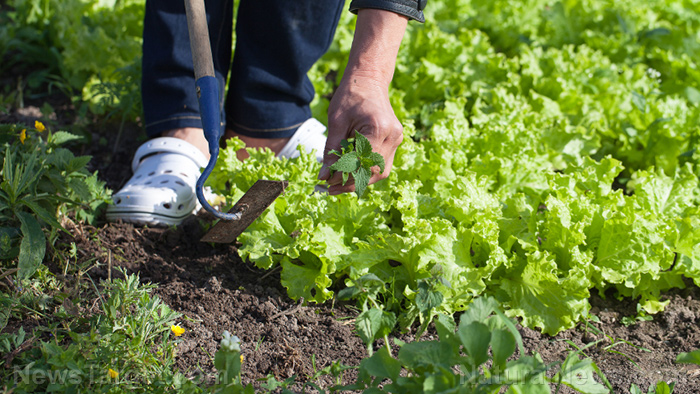
Homesteaders work hard to cultivate the plants in their garden. However, something as small as a weed can wreak havoc even in the most carefully maintained yard. Thankfully, there are two tips that can help you get rid of pesky weeds. (h/t to OldWorldGardenFarms.com)
Did you know that most of the weeds in your garden show up because you work too hard? By easing up on the gardening tasks, you can significantly reduce your weeding chores.
How do weeds end up in your garden?
Like vegetables, weeds have to be “planted.” But while you intentionally plant vegetable seeds, weed seeds invade your garden at will.
Weed seeds will occasionally find their way into the garden surface. Some seeds are blown in by the wind while others may be carried and left behind by birds and other wildlife. Unfortunately, you also unknowingly help weed seeds on the surface get planted.
Whenever garden soil is disturbed by hoeing, shoveling, or tilling, the next crop of weed seeds is planted. This then becomes a vicious cycle that will annoy even the most hardworking gardener.
How to effectively eliminate garden weeds
Not working too hard doesn’t mean neglecting your garden if you want to get rid of weeds. It just means that you can focus on other tasks in your homestead instead of doing things that may aggravate your weed problem.
Here are two secrets to successfully eliminating garden weeds.
1. Don’t till and hoe too much.
It may be considered a crucial gardening tool, but the rototiller is a major planter of weeds. Rototillers are used to rip up sod and prepare the soil for a new garden, but the tool also creates more work and problems in an established garden. Rototillers can be expensive to buy, maintain, and use, and they are weed-planting machines.
In late fall and winter, weed seeds find their way onto the surface of the soil in your garden. These seeds often lay dormant. However, when spring rolls around, using a rototiller will flip the soil along with hundreds or even thousands of weed seeds. This then distributes the seeds all over your vegetable garden.
Once these seeds get a chance to germinate, they will double or triple the weeds in your soil, starting the weed cycle. You will spend a lot of time trying various methods to get rid of the weeds sprouting from the freshly tilled rows and around your plants.
Using a rototiller every few days only tills under the weeds in the rows while hoeing works weeds between the plants. Both these activities only replant more weeds in the soil, which is the last thing you need if you want your garden to thrive.
Tilling and hoeing also affect the soil structure of your garden. The heavy foot traffic and wheels rolling behind a tiller will compact the soil, and a vegetable plant’s growth may be stunted if its roots are compacted. This is one reason to try cultivating a raised row garden, which doesn’t require any tilling on your end. (Related: Tips for starting your own organic garden.)
2. Always cover your soil.
Another easy way to eliminate weeds in your garden is by covering the soil. Once you do this, very few weed seeds will germinate in your garden.
During the growing season, cover all of your walking rows with mulch so you don’t have to spend too much time maintaining them.
You can cover your garden soil with at least six inches of the following materials:
- Bark chips
- Grass clippings
- Newspaper (a biodegradable and garden-safe material)
- Shredded leaves
- Straw
Once the soil is covered, mulch around plants to keep weed seeds out. Use at least two to three inches of mulching around your plants and in your growing rows.
The mulch will help keep out weeds while the compost provides the plants with added nutrients. Make sure you always cover bare soil to keep weeds out of your garden.
Cover your crops in the fall
Lastly, you should plant a fall cover crop every year. When you leave garden soil bare during the winter, you run the risk of creating next year’s weeds. Aside from preventing weeds from sprouting, cover crops help put nutrients back into the soil which your vegetable crop took out while they were growing.
Refrain from tilling and hoeing too much to keep your garden weed-free and don’t forget to put mulch to keep your crops healthy.
Sources include:
Tagged Under: garden weeds, gardening, green living, hoeing, home gardening, homesteading, mulch, off grid, organics, prepper, prepping, rototillers, self sufficiency, survival, sustainable living, tilling, urban gardening, urban prepping, weed control, weeding


